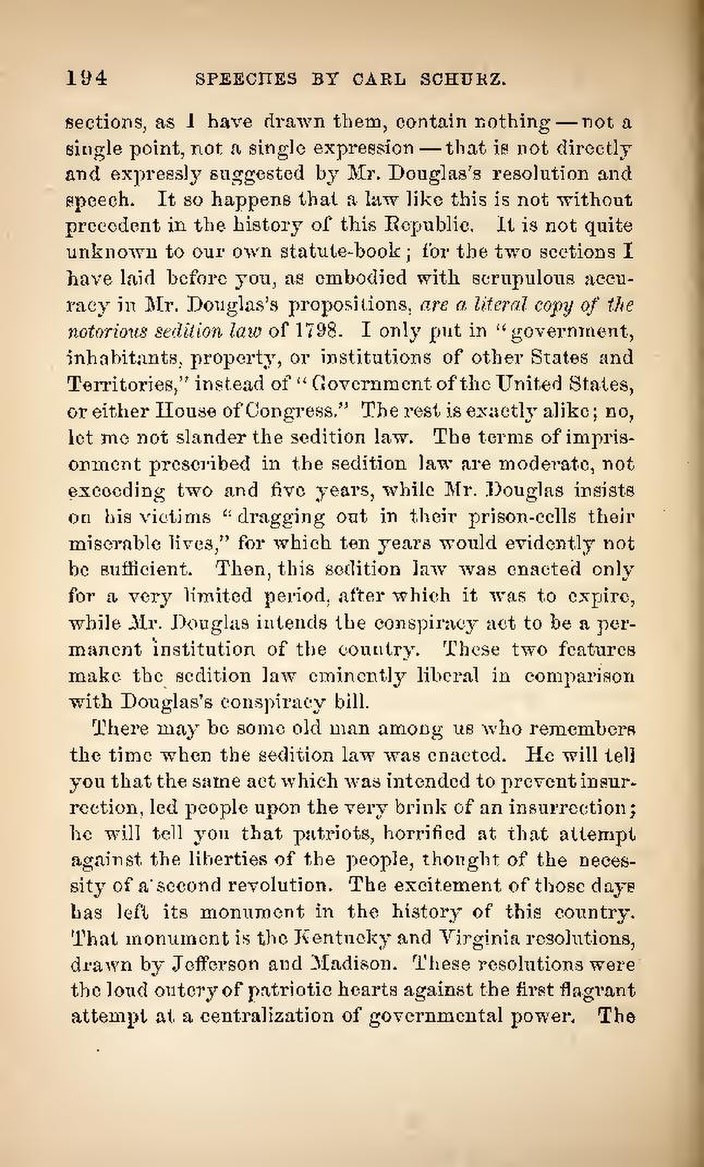sections, as I have drawn them, contain nothing—not a single point, not a single expression—that is not directly and expressly suggested by Mr. Douglas's resolution and speech. It so happens that a law like this is not without precedent in the history of this Republic. It is not quite unknown to our own statute-book; for the two sections I have laid before you, as embodied with scrupulous accuracy in Mr. Douglas's propositions, are a literal copy of the notorious sedition law of 1798. I only put in “government, inhabitants, property, or institutions of other States and Territories,” instead of “Government of the United States, or either House of Congress.” The rest is exactly alike; no, let me not slander the sedition law. The terms of imprisonment prescribed in the sedition law are moderate, not exceeding two and five years, while Mr. Douglas insists on his victims “dragging out in their prison-cells their miserable lives,” for which ten years would evidently not be sufficient. Then, this sedition law was enacted only for a very limited period, after which it was to expire, while Mr. Douglas intends the conspiracy act to be a permanent institution of the country. These two features make the sedition law eminently liberal in comparison with Douglas's conspiracy bill.
There may be some old man among us who remembers the time when the sedition law was enacted. He will tell you that the same act which was intended to prevent insurrection, led people upon the very brink of an insurrection; he will tell you that patriots, horrified at that attempt against the liberties of the people, thought of the necessity of a second revolution. The excitement of those days has left its monument in the history of this country. That monument is the Kentucky and Virginia resolutions, drawn by Jefferson and Madison. These resolutions were the loud outcry of patriotic hearts against the first flagrant attempt at a centralization of governmental power. The
